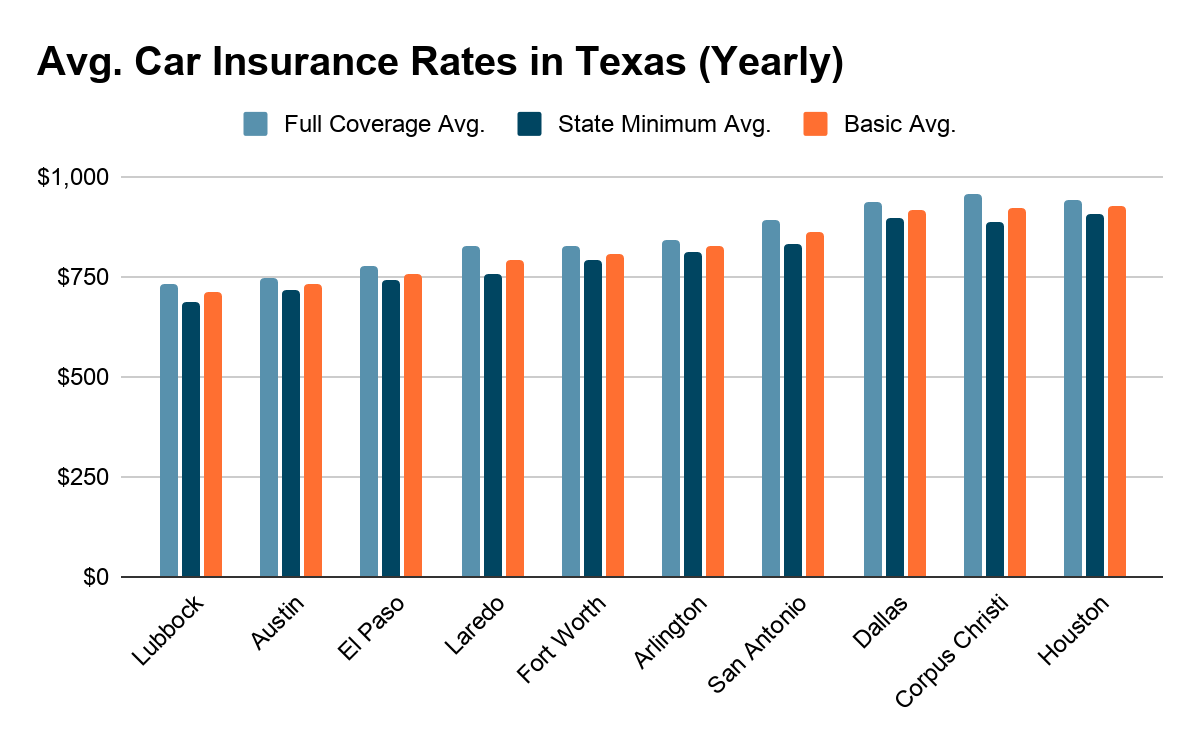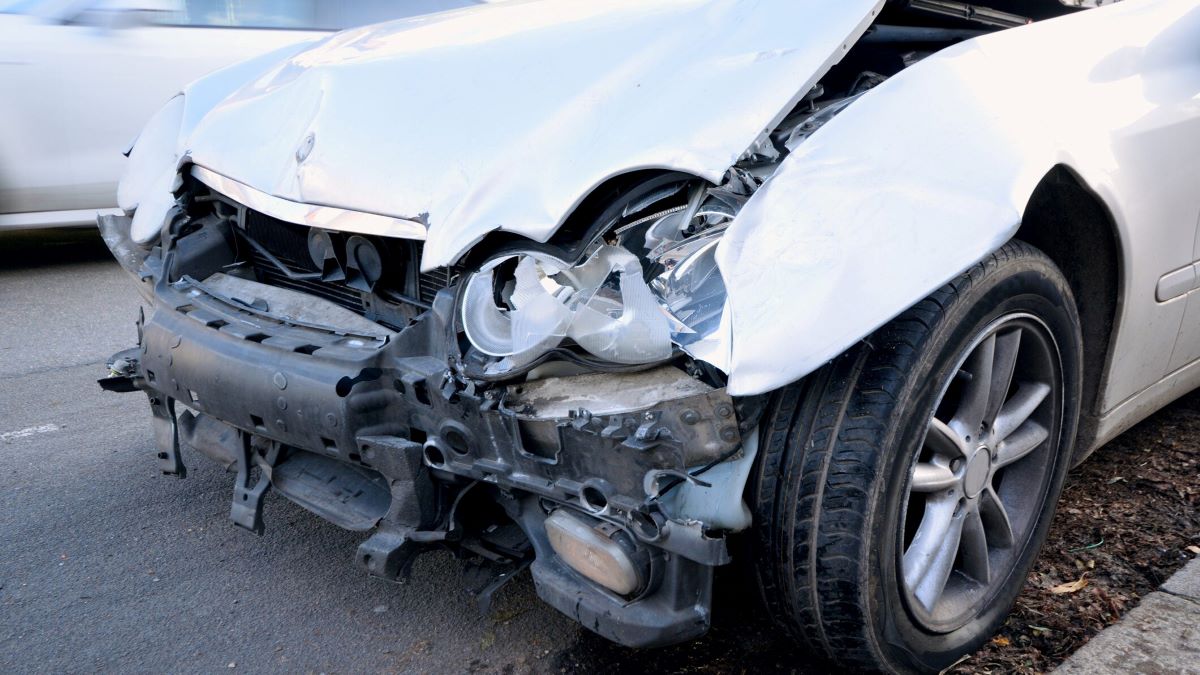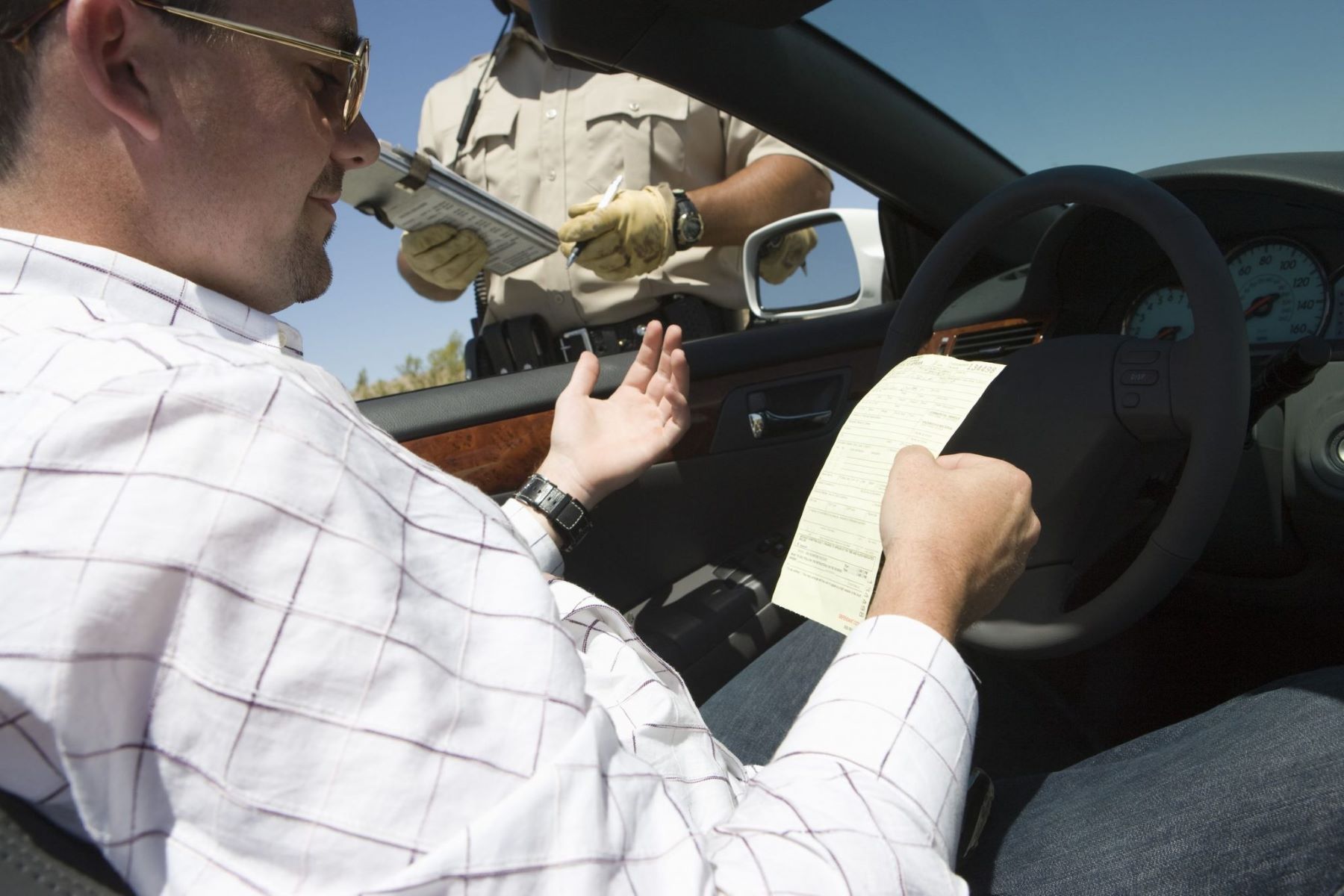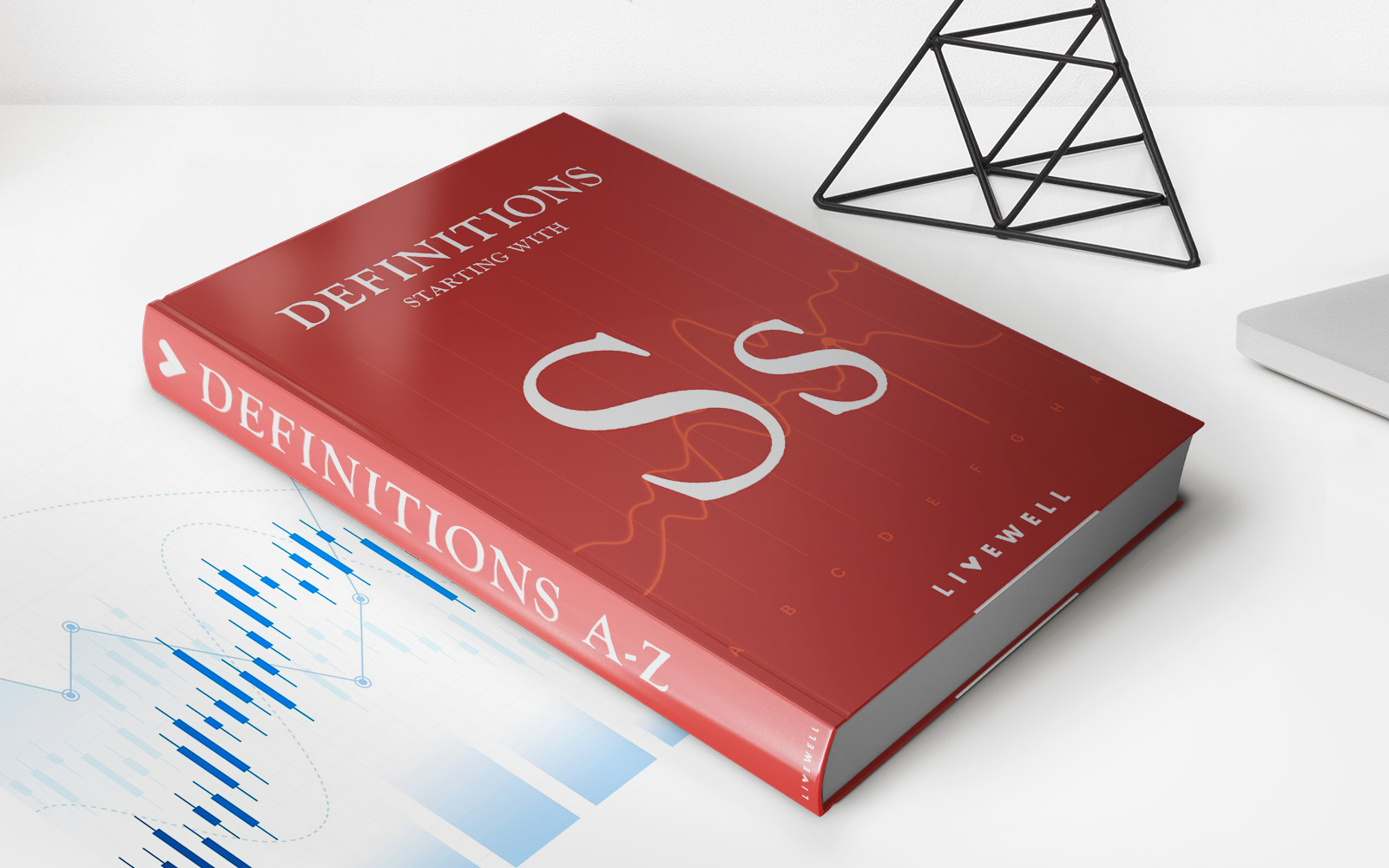Home>Finance>How Much Is A Ticket For No Insurance In Texas?


Finance
How Much Is A Ticket For No Insurance In Texas?
Published: November 18, 2023
Find out the cost of a ticket for driving without insurance in Texas and learn how it can impact your finances. Discover the penalties and consequences for not having insurance in place.
(Many of the links in this article redirect to a specific reviewed product. Your purchase of these products through affiliate links helps to generate commission for LiveWell, at no extra cost. Learn more)
Table of Contents
Introduction
Driving without insurance is not only illegal, but it can also have significant financial consequences. In the state of Texas, drivers are required by law to carry valid auto insurance to protect themselves and others in the event of an accident. Understanding the insurance requirements and the penalties for driving without insurance in Texas is crucial to avoid hefty fines and potential legal issues.
Auto insurance is designed to provide financial protection in the event of an accident, covering medical expenses, property damage, and liability costs. Texas law mandates that all drivers carry minimum liability insurance that includes $30,000 coverage for each injured person, up to $60,000 per accident for bodily injury, and $25,000 for property damage.
Unfortunately, not all drivers obey this law, which poses a risk to both themselves and other road users. In an effort to enforce the insurance requirement, Texas law enforcement officers are authorized to conduct random verifications of insurance coverage during traffic stops. If a driver fails to provide proof of insurance, they can face severe penalties.
In this article, we will explore the specific penalties for driving without insurance in Texas, both for first-time offenders and subsequent offenses. We will also discuss additional consequences that may arise from driving without insurance, as well as potential mitigating factors and the process for contesting a no insurance ticket. By understanding these aspects, drivers can make informed decisions and stay compliant with the law.
Understanding Insurance Requirements in Texas
Before delving into the penalties for driving without insurance in Texas, it is essential to have a clear understanding of the insurance requirements in the state. Texas law mandates that all drivers maintain a minimum level of liability insurance coverage, which includes the following:
- Bodily injury liability: $30,000 per injured person, up to $60,000 per accident
- Property damage liability: $25,000
These minimum coverage amounts ensure that drivers are financially responsible for any harm they may cause on the road. Liability coverage helps protect both the driver and other parties involved in an accident by covering medical expenses, damage to property, and any legal costs that may arise as a result of the accident.
It’s important to note that these minimum coverage amounts are just that – the minimum required by law. Drivers may choose to purchase higher coverage limits or opt for additional types of coverage, such as comprehensive and collision insurance, which provide further protection.
To comply with the insurance requirements, drivers must obtain a valid insurance policy from a licensed insurance company authorized to do business in Texas. Proof of insurance, typically in the form of an insurance card or electronic document, must be carried in the vehicle at all times. Failure to provide proof of insurance when requested by a law enforcement officer can result in penalties, as we will discuss in the next section.
It’s worth mentioning that Texas also allows drivers to self-insure or post a bond as an alternative to purchasing traditional insurance coverage. However, these options require meeting specific criteria and obtaining approval from the Texas Department of Motor Vehicles (DMV).
By adhering to the insurance requirements and maintaining valid coverage, drivers not only ensure legal compliance but also protect themselves, their passengers, and other road users from potential financial burdens in the event of an accident.
Penalties for Driving Without Insurance in Texas
Driving without insurance in Texas is a serious offense that carries significant penalties. The state takes insurance requirements seriously to ensure the financial protection of all drivers on the road. The penalties for driving without insurance vary depending on whether it is a first offense or a subsequent offense.
First Offense: If a driver is caught without insurance for the first time, they can face fines ranging from $175 to $350. Additionally, they may be subject to impoundment of their vehicle, and their driver’s license may be suspended. To reinstate their license, they will need to provide proof of insurance and pay a reinstatement fee, which can range from $175 to $350.
Subsequent Offenses: If a driver is caught without insurance for a second or subsequent time, the penalties become more severe. The fines increase to a range of $350 to $1,000, and the driver’s license suspension period is extended. The impoundment of the vehicle may also occur, with the potential for longer impoundment periods. Furthermore, proof of insurance and payment of a higher reinstatement fee will be required to reinstate the driver’s license.
It’s important to note that these penalties are not the only potential consequences of driving without insurance in Texas. If an uninsured driver is involved in an accident that causes bodily injury or property damage, they can be held personally responsible for all associated costs. This can include medical expenses, vehicle repairs, and legal fees, which can easily amount to thousands or even millions of dollars depending on the severity of the accident.
Moreover, driving without insurance can also have a long-term impact on a driver’s insurance rates. Insurance companies consider uninsured drivers as high-risk individuals, which can lead to higher premiums or difficulty in obtaining insurance coverage in the future.
Being aware of the potential penalties and consequences of driving without insurance should serve as a strong incentive for all Texas drivers to maintain proper insurance coverage at all times. Not only does it ensure legal compliance, but it also provides much-needed financial protection in the event of an accident.
First Offense
For drivers caught without insurance for the first time in Texas, the penalties can be quite significant. In addition to potential fines ranging from $175 to $350, there are other consequences to consider.
When a driver is pulled over and cannot provide proof of insurance, the law enforcement officer has the authority to impound their vehicle. This means that the vehicle is towed and held in an impound lot until the necessary requirements are met. The driver will be responsible for covering the costs of towing and storage during the impoundment period.
Furthermore, driving without insurance for the first time can result in the suspension of the driver’s license. To reinstate their license, the driver must provide proof of valid insurance coverage and pay a reinstatement fee, which can range from $175 to $350.
It is important to note that the suspension of the driver’s license can have far-reaching effects. It may result in difficulty commuting to work or school, and it can also have implications for auto insurance rates in the future. Insurance companies often consider drivers with a suspended license as high-risk individuals, resulting in higher premiums or potential difficulty in obtaining coverage.
When facing a first offense for driving without insurance, it is crucial for the driver to take immediate action. This involves obtaining valid insurance coverage and paying any fines or fees required for license reinstatement. By doing so, the driver can avoid further legal troubles and ensure compliance with the law.
It is worth mentioning that there may be mitigating factors or potential defenses available for drivers facing a first offense. This could involve demonstrating that they had valid insurance coverage at the time of the citation or proving that they were exempt from the insurance requirement for specific reasons. Consulting with a qualified attorney who specializes in traffic law can provide valuable guidance and assistance in navigating the legal process.
Overall, it is vital for Texas drivers to understand the potential consequences of driving without insurance, especially for first-time offenders. By maintaining proper insurance coverage and being prepared with proof of insurance while driving, drivers can avoid the penalties and hardships associated with a first offense.
Subsequent Offenses
For drivers who are caught without insurance in Texas for a second or subsequent time, the penalties become even more severe. The state aims to deter repeat offenders and ensure compliance with the mandatory insurance requirements.
If a driver is caught without insurance for a second or subsequent offense, they can face fines ranging from $350 to $1,000. The exact amount will depend on the circumstances of the offense and the discretion of the court. These increased fines serve as a greater financial deterrent to discourage repeat instances of driving without insurance.
In addition to increased fines, the driver’s license suspension period is extended for subsequent offenses. While a first offense may result in a temporary license suspension, subsequent offenses can lead to longer suspension periods, further impacting the driver’s ability to legally operate a vehicle. To reinstate their license after a subsequent offense, the driver must provide proof of valid insurance coverage and pay a higher reinstatement fee.
Similar to a first offense, subsequent offenses can also trigger the impoundment of the driver’s vehicle. The impoundment period may be longer than for a first offense, and the driver will be responsible for covering the costs of towing and storage during this time.
It is essential for drivers to understand that the consequences of subsequent offenses extend beyond just legal and financial penalties. Driving without insurance can have significant long-term effects on insurance rates. Insurance companies view uninsured drivers as high-risk individuals, which can lead to higher premiums or difficulty in obtaining insurance coverage in the future. Therefore, multiple violations can further complicate a driver’s ability to secure affordable insurance.
When facing a subsequent offense for driving without insurance, it is crucial to address the situation promptly. Obtaining valid insurance coverage, paying any fines or fees required for license reinstatement, and ensuring compliance with the law are essential steps to avoid further legal consequences.
It is worth noting that there may be limited opportunities for mitigating factors or defenses for drivers facing subsequent offenses. Seeking legal counsel from a qualified attorney experienced in traffic law can provide valuable guidance and potentially help navigate the legal process.
Ultimately, Texas drivers must recognize the seriousness of subsequent offenses related to driving without insurance. By maintaining continuous insurance coverage and adhering to the law, drivers can avoid the more severe penalties associated with subsequent offenses.
Additional Consequences
Driving without insurance in Texas can have several additional consequences beyond the immediate penalties and fines. It is important for drivers to be aware of these potential consequences to fully understand the gravity of the offense.
Financial Liability: When an uninsured driver is involved in an accident that causes bodily injury or property damage, they can be held personally responsible for all associated costs. This means that the driver may have to pay out-of-pocket for medical expenses, vehicle repairs, and any other expenses resulting from the accident. These costs can quickly escalate and cause significant financial strain.
Legal Consequences: In addition to the financial liability, driving without insurance can also lead to legal ramifications. If an uninsured driver is at fault in an accident, they may face lawsuits from other parties involved seeking compensation for their damages. This can result in costly legal fees and potentially a judgment against the uninsured driver, leading to wage garnishment or other means of debt collection.
Impact on Insurance Rates: Driving without insurance can also have long-term effects on a driver’s insurance rates. Insurance companies regard uninsured drivers as high-risk, and as a result, they may increase the driver’s premiums significantly. Additionally, insurers may be hesitant to provide coverage to drivers with a history of driving without insurance, making it more challenging to find affordable insurance options in the future.
Suspension of Vehicle Registration: In addition to potential driver’s license suspension, driving without insurance can lead to the suspension of the vehicle’s registration. This means that the vehicle cannot be legally driven or operated until insurance coverage is obtained, fines are paid, and the registration is reinstated. The suspension may also require additional fees and documentation.
Given the considerable financial, legal, and logistical consequences of driving without insurance, it is clear that maintaining proper insurance coverage is of utmost importance. Drivers should view insurance not only as a legal requirement but also as a means of protecting themselves and others in the event of an accident.
For those who may be struggling to afford insurance, it is worth exploring options such as discounted insurance programs, low-income assistance, or alternative insurance plans that may be available through the state or insurance providers.
In summary, the additional consequences of driving without insurance in Texas can be severe, affecting a driver’s finances, legal standing, and ability to secure future insurance coverage. Drivers should prioritize obtaining and maintaining adequate insurance coverage to avoid these potential hardships.
Mitigating Factors
While driving without insurance in Texas can have serious consequences, there may be certain mitigating factors that can potentially help reduce the penalties or provide a defense for the driver. It is important to note that these factors may vary depending on the circumstances of the case and the discretion of the court.
Valid Insurance Coverage: If a driver can provide proof of valid insurance coverage at the time of the citation, it may serve as a strong mitigating factor. This could involve presenting an insurance card or electronic document demonstrating that the driver was indeed insured at the time of the traffic stop. However, it is crucial for the driver to ensure that their insurance policy complies with the minimum requirements set forth by Texas law.
Temporary Lapse in Coverage: In some cases, a driver may have experienced a temporary lapse in insurance coverage due to unforeseen circumstances, such as a missed payment or a delay in renewing the policy. If the driver can demonstrate that they promptly rectified the situation by reinstating coverage after the citation, it may be seen as a mitigating factor.
Factual Disputes: There may be instances where the driver believes there is a factual dispute regarding the circumstances of the traffic stop or the issuance of the citation. This could involve contesting the accuracy of the information recorded by the law enforcement officer or presenting evidence that challenges the basis of the citation. In these cases, it is advisable to consult with an attorney experienced in traffic law to help build a strong defense.
Technical Defenses: In certain situations, there may be technicalities or legal nuances that can be used as a defense. This might involve challenging the legality of the traffic stop or questioning the validity of the citation itself. Again, seeking legal counsel is crucial to navigate these complex legal arguments effectively.
It is important to approach mitigating factors with honesty and transparency, providing accurate information to the court. Misrepresenting or falsifying information can lead to further legal consequences and damage credibility.
While mitigating factors can potentially help reduce the penalties or provide a defense, it is essential for drivers to remember that prevention is always the best approach. Maintaining continuous and valid insurance coverage not only ensures legal compliance but also provides crucial financial protection in the event of an accident. By prioritizing insurance and responsible driving, drivers can avoid the need for mitigating factors altogether.
Contesting a No Insurance Ticket in Texas
If a driver receives a no insurance ticket in Texas and believes that it was unjust or issued in error, there are options for contesting the citation. However, it is important to note that contesting a ticket can be a complex process and may require legal assistance to navigate effectively.
Gather Evidence: The first step in contesting a no insurance ticket is to gather any evidence that supports your case. This might include documentation such as valid insurance cards, policy information, or proof of payment. It is crucial to ensure that the evidence is accurate, up to date, and complies with the minimum insurance requirements set by Texas law.
Consult with an Attorney: Given the legal complexities involved in contesting a ticket, it is highly advisable to consult with an experienced traffic attorney. They can assess the specifics of your case, analyze the evidence, and provide guidance on the best course of action. An attorney can help build a strong defense strategy and represent you in court if necessary.
Plead Not Guilty: To contest a no insurance ticket, you will typically need to plead not guilty and request a court hearing. This can usually be done by submitting a written plea or appearing in person at the specified courthouse. It is important to meet any required deadlines for submitting your plea to avoid additional penalties or consequences.
Prepare for Court: Prior to the court hearing, you should work closely with your attorney to build a strong defense. This may involve reviewing the citation, examining any evidence against you, and preparing your arguments. Your attorney can help you understand the legal strategies available and guide you on presenting your case effectively in court.
Present Your Case: During the court hearing, you or your attorney will have the opportunity to present your case, including any evidence and arguments in your defense. The prosecution will also present their side, and the judge will make a decision based on the facts presented. It is crucial to remain respectful and follow proper courtroom etiquette throughout the process.
Appeal if Necessary: In some cases, the court’s decision may not be in your favor. If you believe there were errors or legal issues with the judgment, you may have the option to appeal the decision. Consult with your attorney to determine the viability of an appeal and the necessary steps to proceed.
Contesting a no insurance ticket can be a complex and time-consuming process. It is important to approach the situation with diligence, preparation, and the guidance of a qualified attorney. By effectively presenting your case and defending your rights, you may have the opportunity to challenge the no insurance ticket’s validity.
However, prevention is always better than contesting a ticket. By ensuring continuous insurance coverage, drivers can avoid the need for legal proceedings and the potential consequences that come with driving without insurance.
Conclusion
Driving without insurance in Texas is a serious offense that can have significant financial, legal, and personal consequences. Understanding the insurance requirements and penalties associated with driving without insurance is crucial to ensure compliance with the law and protect oneself from the potential financial burdens of an accident.
By maintaining valid insurance coverage that meets the minimum requirements set by Texas law, drivers can not only avoid the penalties but also have peace of mind knowing they are protected in the event of an accident. It is important to carry proof of insurance at all times and promptly address any lapses in coverage to avoid legal issues.
However, in the event of receiving a no insurance ticket, drivers have options for contesting the citation. Gathering evidence, consulting with a qualified attorney, pleading not guilty, and presenting a strong defense in court can help challenge the validity of the ticket and potentially reduce the penalties or dismiss the charges altogether.
Ultimately, prevention is always the best approach. Texas drivers should prioritize obtaining and maintaining proper insurance coverage to comply with the law and protect themselves and others on the road. By understanding the insurance requirements, adhering to them diligently, and staying informed about potential consequences, drivers can navigate the roads safely and responsibly.
Driving without insurance is not worth the financial and legal risks it entails. It is far better to invest in insurance coverage that provides financial protection and ensures compliance with the law. By doing so, drivers can prioritize their safety, the safety of others, and enjoy the peace of mind that comes with knowing they are properly insured.














